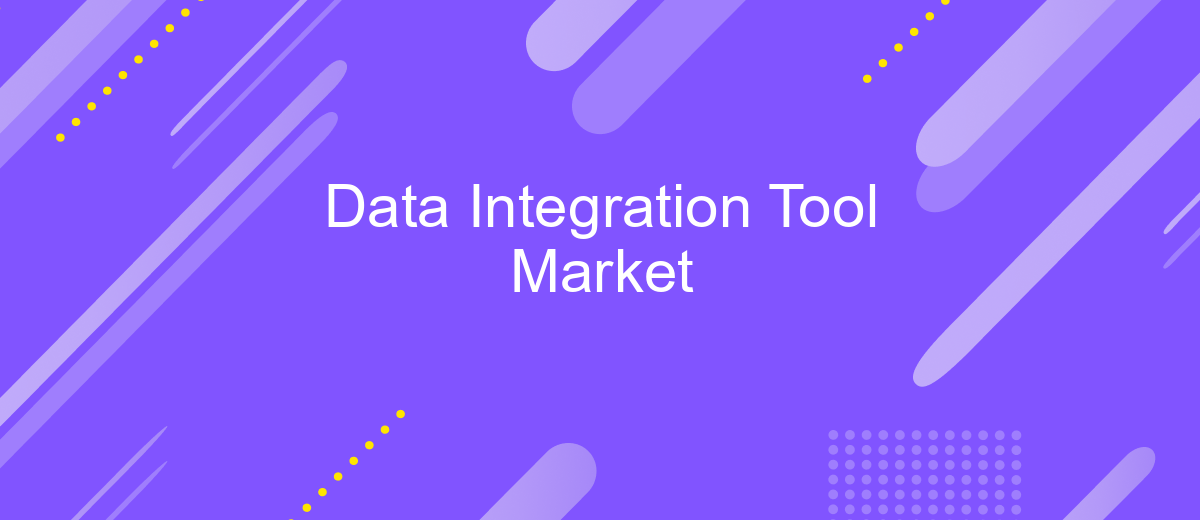Data Integration Tool Market
The Data Integration Tool Market is experiencing significant growth as organizations increasingly rely on these solutions to streamline data management and enhance decision-making processes. With the surge in big data and the need for seamless data flow across diverse systems, businesses are investing in advanced integration tools to ensure data accuracy, accessibility, and efficiency. This market evolution is driven by technological advancements and the rising demand for real-time analytics.
Introduction to Data Integration Tools and Their Significance
Data integration tools are essential software solutions that enable organizations to combine data from various sources into a unified view. These tools facilitate the process of consolidating information, ensuring that data is accessible, accurate, and up-to-date for business intelligence and decision-making. By streamlining data management, integration tools help organizations gain insights, improve operational efficiency, and maintain data integrity across systems.
- Data Consolidation: Integrates data from different sources into a single repository.
- Data Transformation: Converts data into a consistent format for analysis.
- Real-time Access: Provides up-to-date information for timely decision-making.
- Scalability: Supports growing data volumes and diverse data types.
- Data Quality: Ensures accuracy and consistency of integrated data.
In today's data-driven world, the significance of data integration tools cannot be overstated. They empower organizations to unlock the full potential of their data, enabling seamless collaboration and innovation. As businesses continue to generate vast amounts of data, the need for effective data integration solutions becomes increasingly critical. By leveraging these tools, companies can enhance their competitive edge, optimize processes, and drive strategic growth.
Market Segmentation and Analysis (by type, deployment, industry, etc.)

The Data Integration Tool Market is segmented by type, including ETL (Extract, Transform, Load) tools, data replication tools, data virtualization tools, and cloud-based integration tools. ETL tools dominate the market due to their ability to handle large volumes of data efficiently. However, cloud-based integration tools are rapidly gaining traction, driven by the increasing adoption of cloud services. These tools offer scalability and flexibility, making them ideal for businesses of all sizes. ApiX-Drive, for instance, provides a user-friendly platform that simplifies the integration process, allowing businesses to connect various applications seamlessly.
Deployment-wise, the market is categorized into on-premise and cloud-based solutions. Cloud-based solutions are witnessing substantial growth due to their cost-effectiveness and ease of access. Industry-wise, the market caters to sectors such as healthcare, finance, retail, and manufacturing. The healthcare industry, in particular, is leveraging data integration tools to enhance patient care and streamline operations. In finance, these tools are crucial for real-time data processing and compliance management. As industries continue to digitalize, the demand for efficient data integration solutions is expected to rise, further propelling market growth.
Key Players and Competitive Landscape

The Data Integration Tool market is characterized by a dynamic competitive landscape, with numerous key players driving innovation and growth. These companies are continuously enhancing their offerings to meet the evolving demands of businesses seeking efficient data management solutions. The market's competitive nature is fueled by advancements in technology and the increasing need for seamless data integration across various platforms.
- IBM Corporation
- Microsoft Corporation
- Oracle Corporation
- Informatica LLC
- SAP SE
- Talend S.A.
- SAS Institute Inc.
- Hitachi Vantara LLC
- Denodo Technologies
- QlikTech International AB
These companies are at the forefront of the market, offering a diverse range of tools and services that cater to different industry needs. They are investing heavily in research and development to introduce innovative features, improve user experience, and expand their global presence. As competition intensifies, strategic partnerships and acquisitions are becoming common strategies to gain a competitive edge and capture a larger market share.
Future Trends and Growth Drivers

The Data Integration Tool Market is poised for significant transformation as organizations increasingly prioritize seamless data connectivity. Emerging technologies such as artificial intelligence and machine learning are expected to drive innovation, enabling more efficient data processing and analysis. This evolution is crucial as businesses strive to harness the power of big data for competitive advantage.
Cloud-based solutions are gaining traction, offering scalability and flexibility that traditional on-premise systems cannot match. The demand for real-time data integration is also on the rise, as companies seek to make informed decisions swiftly. This shift is prompting vendors to enhance their offerings with robust, real-time capabilities.
- Increased adoption of AI and machine learning for predictive analytics.
- Growing emphasis on data security and compliance.
- Expansion of cloud-based integration platforms.
- Rising demand for self-service data integration tools.
As the market evolves, collaboration between data integration vendors and cloud service providers will likely intensify, fostering innovation and expanding service offerings. Organizations that embrace these trends will be better positioned to leverage data as a strategic asset, driving growth and operational efficiency.
- Automate the work of an online store or landing
- Empower through integration
- Don't spend money on programmers and integrators
- Save time by automating routine tasks
Conclusion and Key Takeaways
The Data Integration Tool Market is rapidly evolving, driven by the increasing need for seamless data connectivity across diverse platforms. Organizations are prioritizing efficient data management solutions to enhance operational efficiency and decision-making capabilities. As businesses continue to adopt cloud-based solutions and digital transformation strategies, the demand for robust data integration tools is expected to grow. These tools not only facilitate the smooth exchange of information but also ensure data accuracy and consistency, which are crucial for maintaining competitive advantage.
Key takeaways from this market include the importance of selecting tools that offer flexibility, scalability, and user-friendly interfaces. Services like ApiX-Drive exemplify this by providing easy-to-use integration solutions that require minimal technical expertise, enabling businesses to automate workflows and integrate applications effortlessly. As the market expands, businesses should focus on tools that can adapt to their evolving needs and support a wide range of data sources and destinations. In conclusion, investing in the right data integration tools is essential for leveraging the full potential of data-driven insights and achieving long-term business success.
FAQ
What is a data integration tool, and why is it important?
How do data integration tools work?
What are the key features to look for in a data integration tool?
How can businesses automate data integration processes?
What are the benefits of using a service like ApiX-Drive for data integration?
Strive to take your business to the next level, achieve your goals faster and more efficiently? Apix-Drive is your reliable assistant for these tasks. An online service and application connector will help you automate key business processes and get rid of the routine. You and your employees will free up time for important core tasks. Try Apix-Drive features for free to see the effectiveness of the online connector for yourself.


